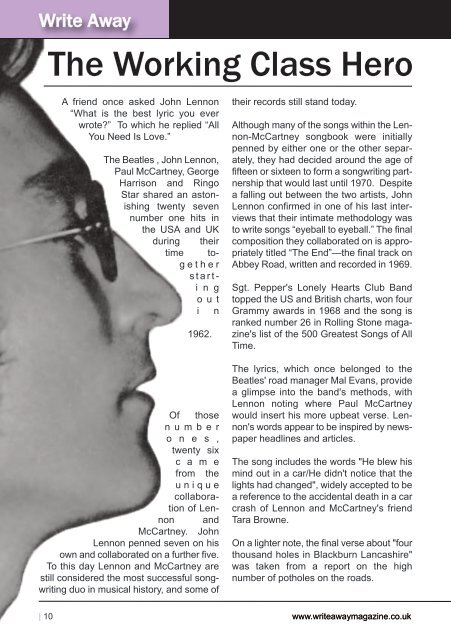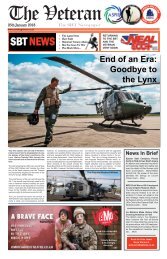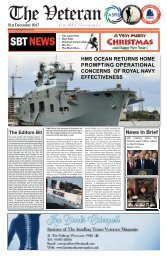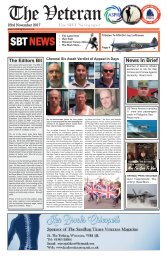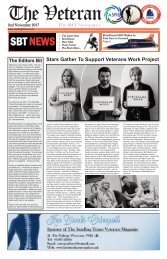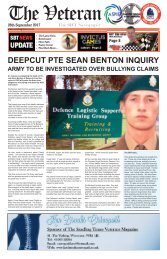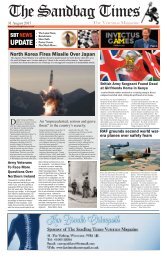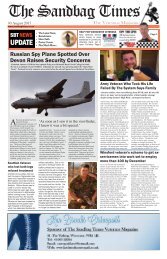Write Away Magazine - Issue No1
Create successful ePaper yourself
Turn your PDF publications into a flip-book with our unique Google optimized e-Paper software.
<strong>Write</strong> <strong>Away</strong><br />
The Working Class Hero<br />
A friend once asked John Lennon<br />
“What is the best lyric you ever<br />
wrote?” To which he replied “All<br />
You Need Is Love.”<br />
The Beatles , John Lennon,<br />
Paul McCartney, George<br />
Harrison and Ringo<br />
Star shared an astonishing<br />
twenty seven<br />
number one hits in<br />
the USA and UK<br />
during their<br />
time<br />
together<br />
starti<br />
n g<br />
out<br />
i n<br />
1962.<br />
Of those<br />
number<br />
o n e s ,<br />
twenty six<br />
c a m e<br />
from the<br />
unique<br />
collaboration<br />
of Lennon<br />
and<br />
McCartney. John<br />
Lennon penned seven on his<br />
own and collaborated on a further five.<br />
To this day Lennon and McCartney are<br />
still considered the most successful songwriting<br />
duo in musical history, and some of<br />
their records still stand today.<br />
Although many of the songs within the Lennon-McCartney<br />
songbook were initially<br />
penned by either one or the other separately,<br />
they had decided around the age of<br />
fifteen or sixteen to form a songwriting partnership<br />
that would last until 1970. Despite<br />
a falling out between the two artists, John<br />
Lennon confirmed in one of his last interviews<br />
that their intimate methodology was<br />
to write songs “eyeball to eyeball.” The final<br />
composition they collaborated on is appropriately<br />
titled “The End”—the final track on<br />
Abbey Road, written and recorded in 1969.<br />
Sgt. Pepper's Lonely Hearts Club Band<br />
topped the US and British charts, won four<br />
Grammy awards in 1968 and the song is<br />
ranked number 26 in Rolling Stone magazine's<br />
list of the 500 Greatest Songs of All<br />
Time.<br />
The lyrics, which once belonged to the<br />
Beatles' road manager Mal Evans, provide<br />
a glimpse into the band's methods, with<br />
Lennon noting where Paul McCartney<br />
would insert his more upbeat verse. Lennon's<br />
words appear to be inspired by newspaper<br />
headlines and articles.<br />
The song includes the words "He blew his<br />
mind out in a car/He didn't notice that the<br />
lights had changed", widely accepted to be<br />
a reference to the accidental death in a car<br />
crash of Lennon and McCartney's friend<br />
Tara Browne.<br />
On a lighter note, the final verse about "four<br />
thousand holes in Blackburn Lancashire"<br />
was taken from a report on the high<br />
number of potholes on the roads.<br />
| 10 www.writeawaymagazine.co.uk


